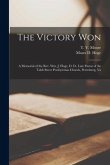Maryalice Swiney-Zoë researches and examines for more than thirty years' genealogy of the Swiney family, and a true story that she inherited as a child. After recovering from extensive operations at Charity Hospital, her father writes his life in letter codes. Swiney-Zoë breaks the historical codes of her father life, and writes his story in this extraordinary setting of the first book series of Caesar that begins in 1923 and ends in 1947. Dingus is summons to return home from working at the hard mill by the oldest son, his wife Lucy is having complication birthing the fifth child. After the birth of their son, Dingus and Lucy agree to name their son Caesar. The father's hopes and dreams for his children would be questionable, preserving and restoring the journey of one's humanity would come through the test of life, triumph, instinct, and culture. An unfortunate accident would strike Caesar, when he is taken by surprise from landing on a tree stump that leaves the left side of this body paralyzed; Caesar is told of a better hospital located in New Orleans, for the hospital had experience doctors who could treat his accident. Dingus and Lucy are hesitant to have Caesar admitted to the other hospital, but with conditions of Caesar not recovering from his accident, it would lead his parents to have him admitted to Charity Hospital. Caesar inherits the history of his African ancestors from his grandfather who was a slave, as well as his father's journal. In the winter of 1937, Dingus comes down with pneumonia and dies in January 1938. After the death of their father, Becky, one of the oldest Sweeney children had Caesar placed in a hospice to die. The hospice nurse realized that Caesar is still alive and breathing; she summons the hospice doctor to confirm her examination of him. Caesar is re-admitted at Charity Hospital to undergo extensive operations that tragedy; he ends up losing his left lung. With passion and faith, his near-death experience gives him the courage to survive, for he is put to the ultimate test of racism, family trust, and a journey of strangers who hides him, as he begins to quilt his life as a young adult. With courage and determination to learn, Caesar is fascinated by President Franklin D. Roosevelt speech that becomes the focus of four disciplines, "The Four Freedoms." Naomi the sister-in-law uses her potion of poison to control the Sweeney family. The story also examines the language during the 1930s and 1940s of black culture. Caesar is an inspirational story to all ethics, culture, creed, gender, and race.
Hinweis: Dieser Artikel kann nur an eine deutsche Lieferadresse ausgeliefert werden.
Hinweis: Dieser Artikel kann nur an eine deutsche Lieferadresse ausgeliefert werden.








